‘Touch rugby is so LGBTQ+-inclusive – we wanted to give back’: Nick Heath and Tom Hall on Pride in Touch
It’s one of the UK’s fastest-growing mixed-gender team sports – and with such a strong reputation for inclusion, it’s no surprise that touch rugby is attracting people from LGBTQ+ communities. Ahead of a West London Queer Project taster session on May 14, the founders of Pride in Touch explain why the game is perfect to just pick up and play…
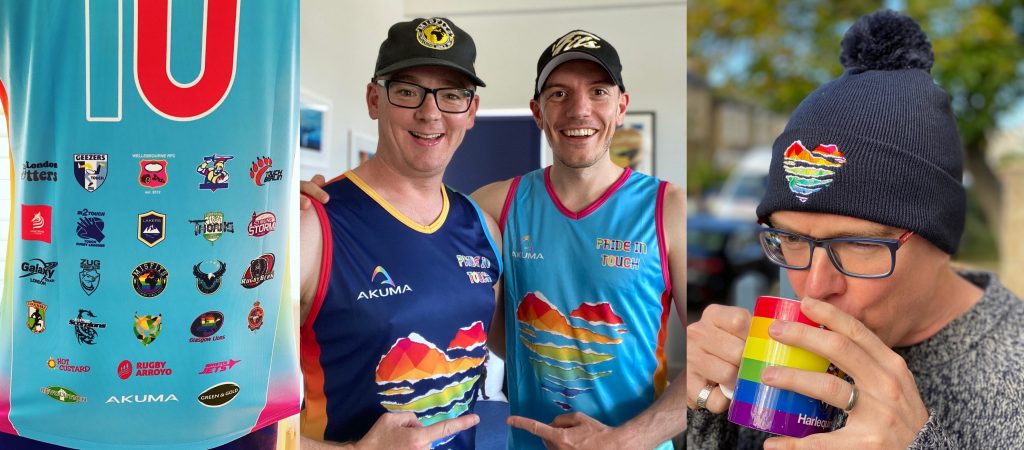
Bright ideas and brainwaves were in abundance during the early days of the pandemic – and Nick Heath is a prime example of that.
The broadcaster’s hilarious ‘Life Commentary’ vids were a hit on social media and his virtual pub quizzes were also hugely popular.

But there was a third success story too, with Nick and his husband Tom Hall laying the foundations for Pride in Touch, an initiative to promote LGBTQ+ inclusion in touch rugby that continues to gather momentum.
For the uninitiated, touch is a highly versatile, minimal contact version of rugby whose roots can be found in rugby league training sessions in Australia in the 1960s.
By the mid-80s, an international federation had been formed and there are now around 50 associations representing member nations, with England Touch among them.
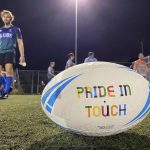
The production of touch rugby vests for Pride Month in June 2020 proved to be the launchpad for Nick and Tom’s organisation and they have since formed close ties with England Touch, helping to grow awareness of the game among LGBTQ+ people and allies whilst also working on policy and participation.
On Saturday, May 14, they will deliver a touch taster session alongside In2Touch for the West London Queer Project, a social and community group based in Chiswick. The event is being supported by us at Sports Media LGBT+, with whom Nick is a core member of our industry network group.
We caught up with Nick and Tom to learn more about the growth of Pride in Touch, their own stories within the sport, and what attendees to a touch taster session can expect…
JH: Hi Nick and Tom! Some people reading this might not know a lot about touch rugby. How would you introduce it to them?
Tom: Thanks for having us! I think touch is amazing – it’s uniquely placed in that at its most grassroots level, it’s a mixed sport which makes it inherently inclusive.
It attracts people that are more open to that style of sport and that lends itself to the social side as well. It’s a really good environment for making friends and going out afterwards as a mixed group is always really fun.
Nick: It’s also a leveller of a sport at its very beginning because unlike ‘proper’ rugby or something that’s a bit more structured, you can just pick up a ball with a few team-mates and play the game.
Obviously, there are rules but touch is so much more accessible, in that people can get to grips with it pretty quickly and have a game.
Then if you want to, you can go on to learn how the game is played at a higher level and how much more technical it can get. But ultimately, as long as you can pass the ball backwards and put the ball down on the floor and step over it, then you’ve already got the basics to be able to play.
We’d encourage people to just try the sport. After that, it’s quite easy now to continue playing it not just in the spring and summer months but most of the year round. In metropolitan areas certainly but also in more areas of the country than ever before, the sport continues to grow.
JH: You’re helping to put on a taster session for West London Queer Project (WLQP) on May 14. There are lots of sports clubs and groups in the wider London area that are stated as being LGBTQ+-inclusive but relatively few on the west side of the capital. What can touch rugby offer to help address that?
Tom: In London as a whole, there are so many opportunities to play touch. It’s a really fast-growing sport anyway and there are lots of established clubs and organised leagues but there are also lots of social runabouts and things like that.
Once you’re in a team and you’ve got a social circle, there are all sorts of tournaments that go on across the country and in Europe. You can almost go on tour and have an amazing time! So as much as you want to lean into the sport, it will give back to you which I think is quite special.
Also the clue’s in the name – it’s a minimal-contact sport so it does lend itself to different age groups, abilities, physicalities, etc. It does tend to attract quite a diverse crowd anyway so from our experience of being part of the LGBTQ+ community, it’s been very open and welcoming.
I dropped out of team sport after school, and touch was the first one I came back into. It was with a social, mixed-gender touch team called Misfits that Nick had set up in Clapham and it couldn’t have been a better environment for me just to step back in. I want to make sure other people know that touch is there for them and that they can get that opportunity as well.
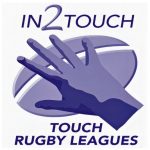
For the WLQP session, we’re delivering it alongside our partners In2Touch who are working hard to be inclusive. I feel confident that if anyone was at one of their taster sessions, they’d be welcomed and find that it’s a safe space.
JH: How do the traditional values and ethos of rugby carry through to touch rugby?
Nick: On a broad level, touch and the oval ball is coming from a sport that’s for everybody – the main 15-a-side game of rugby union has a physical element to it but regardless of that, there’s a role for you either in the forwards or in the backs.
Touch is non-discriminatory in the same way. If you want to pick up a ball and play, then there are other people you can do it with. For me, it’s that part of it that is fundamental to team sport – relying on each other, and seeing what skills people bring.
The non-judgemental and considerate side of rugby that spills through to touch is such that different people will bring different things on the field. Ultimately, everyone can have a drink in the bar afterwards because you’ve all played a role within the game. So there’s a real connectivity there.
JH: The mixed gender aspect is right at the core of the game, isn’t it? Many people won’t have played that kind of team sport before.
Nick: Everyone should feel included and comfortable for who they are in sport so touch being mixed is certainly a good advert for that.
Inclusion in sport is a particularly interesting point in the LGBTQ+ community. I understand the need to be around others who have had shared experiences, but I also think we should remember that ‘true’ inclusion is feeling comfortable within a team where it doesn’t matter whether you’re – for example – gay or straight, a man or a woman, cisgender or trans, etc.
JH: Tell us about the story of Pride in Touch. What was the starting point?
Tom: We set up the organisation formally in 2020 after some vague ideas we’d had the previous year. It was very simple to start with – we both felt that we’d benefitted so much from touch but we were very aware of the barriers in sport that still exist for LGBTQ+ people.
We wanted to give back to our sport so it was about raising awareness to start with. We thought, wouldn’t it be great if there was something people could wear to show they’re part of the community or an ally?

That’s when we created our Pride in Touch playing tops, and the reception we got was incredible. We got a lot of engagement and sold close to 1,000 across the UK and Europe, and a few other countries too.
That got the name out there within the touch community and we realised we could probably do more than just create a few vests and things like that.
We started to think more about how we could address some of these barriers that still exist. From there, we’ve built partnerships with governing bodies and organisers of touch; we’ve delivered training to clubs and associations; and we’re looking more clearly now at what we can do to make a difference.
JH: What’s the picture like across the country?
Tom: On a UK level, it’s a bottom up and top down approach. We have a partnership with England Touch, but we’re also trying to do as much as we can on the ground.
Taster sessions like the one we’ve got for WLQP are massively important and where the real work happens – bringing new people into the game. It could be the first time they’ve played touch, or maybe even the first time they’ve played team sport since school or university. It’s about creating an environment where they feel safe, or where they can come and have a runabout and no one will judge them. It’s a space where you can have a lot of fun and try out a new sport.
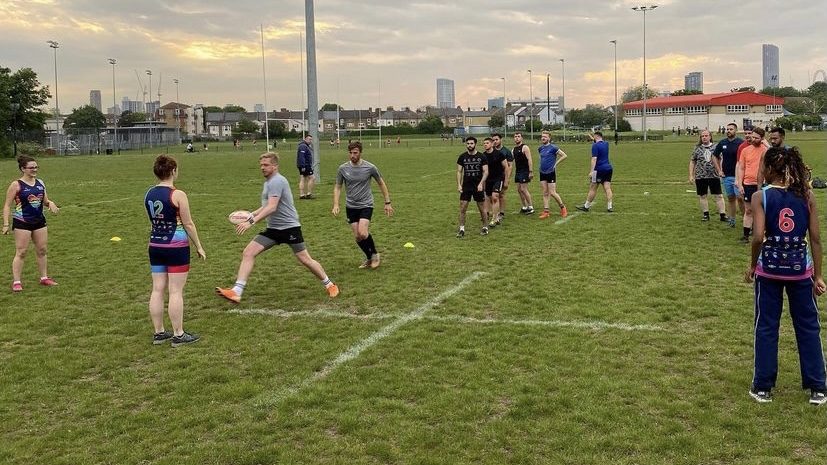
What we also know from doing the work with England Touch is that there’s a foundation being laid that will support them as much as they want to lean into touch going forward. We don’t want to just do the work at the grassroots and know that LGBTQ+ people are not being supported at an organisational level. Similarly, we don’t want to help put policies in place at England Touch that can’t be implemented on the ground.
So we’re trying to bring all of that together. It’s not easy but these things take a bit of work. We have aspirations to be a global influence – we’ve been talking about ‘what is Pride in Touch? What does it stand for? What are we trying to achieve?’
We’ve distilled it down to saying that we don’t want to be the organisation that says you’ve got to ‘do this’ or ‘do that’. What we want to be is the platform that brings together any initiative happening anywhere in the world in touch that’s related to LGBTQ+ inclusion. We can bring our influence to amplify that – we like the idea that that’s what Pride in Touch stands for.
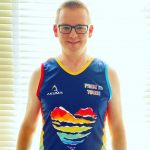
Nick: We’re learning all the time about those experiences and opportunities that people are making. We’re already being contacted by people asking, ‘we’d love to do a Pride in Touch day for you’. And we’re saying, ‘great! Tell us when it is, let us shout about it and send people your way’. Pride in Touch is a platform to encourage and support others, so that can be the greatest way for us to influence and celebrate what’s going on.
JH: You’ve got your second annual tournament coming up in Manchester on June 25. How many teams are going to be involved?
Tom: Last year in London, we had eight teams participate in our first summer tournament, at a time when we were coming out of strange Covid restrictions. We were just happy that we had a tournament go ahead! The atmosphere was great, we had volunteers helping to run the day, and the games were competitive and sociable.
It was a conscious decision to take it out of London this year. We’re fortunate to have Ben Dawson at Manchester Village Spartans Touch helping us to run it. We’re hoping for at least another eight teams and if it’s bigger, that’s fantastic. It’s more about demonstrating that these events are important and ensuring we have good visibility.
We also want to engage with the local community – we don’t just want teams travelling up from London to play in Manchester, we want teams in the region to get involved.
Nick: If we get people coming along who are playing touch for the first time, our tournament will be an environment where that will work for them. If we’ve got teams that are more established and want to show how good they are, we’ll be able to accommodate them as well.
We’ll have high-level referees there who’ll ensure the atmosphere is right for however different people play the game. The nature of touch is such that some of the rules can seem strict or pedantic at times. But if you’ve got people who are new to the sport, then you can be more relaxed in how they’re playing the game, and a little stricter on teams that want to play harder.
It’s a social, intermediate / beginner tournament under the Pride in Touch umbrella, which makes it open to a lot of people, whether LGBTQ+ or allies.
JH: A lot of people reading this will know about International Gay Rugby (IGR) which has about 30 clubs in the UK and is also growing fast as a network. What’s the relationship like there?
Nick: The whole IGR network is really developing its touch offering. We did some work with Kings Cross Steelers last year where we ran a month of workshop experience sessions and we had around 60 to 80 people down every week.
They were concerned about whether introducing a less combative, less physical version of the sport might dilute that group of people who want to play the full version of the game. But Ben Dawson at Spartans said to me that when they ran an open touch session and got people down that were interested, the pathway of movement was actually that more people got to know the club and fancied trying the contact version of 15s, rather than the other way around.
So we’re finding that IGR teams are recognising that touch isn’t a threat to what they’re doing. Certainly in the summer months, it’s a chance to build and maintain fitness because it’s a quicker-paced game. Touch is growing into its own regionalised tournaments and giving more LGBTQ+ people the chance of picking up an accessible, team sport.

Tom: Also, with our Pride in Touch tournament, it’s mixed gender. When it comes to the rules of implementing that, different organisations might choose different styles depending on availability and what they’re trying to achieve.
We’re trying to include women and non-binary people as much as we can. It’s a huge focus for the game. It already does draw in a lot of women’s participation but sometimes mixed tournaments will allow men’s teams to play and award more points to teams that have a mixed team versus a men’s team, for example.
With ours, we’re trying to push that inclusive and equal side of it. Bringing IGR teams into our tournaments is a way to encourage them to recruit more women, or if you already do have women in your club, to get them involved in touch as well. It’s massively important to us to grow that side of the game.
JH: How did you both get into the sport in the first place?
Nick: For me, it was in 2007. I ended up going down to play with a mate of mine because we’d decided, in our mid to late 20s, that we were getting fat from drinking too much beer and that it was probably time to start running around again!
I then met Tom in 2011 and took him down to run out with our team in the depths of winter. He got shouted at by a couple of Australian girls who were very competitive!
Tom: They were very good touch players, that’s what they were!
I did what probably a lot of ex rugby-playing guys have done in the past when someone says, ‘do you want to come play a game of touch?’ I assumed it was the warm-up version of rugby that I’d played since I was a little kid. So I probably came with a fair bit of overconfidence, thinking it would be easy and that I’d be dead good because I’d played rugby before.
I couldn’t have been more wrong! The standard was high and I was terrible – but I had a lot of fun and it was great to hang out with everyone. It was that sociable nature of the sport that kept me in but it also made me realise that touch is its own game. There’s stuff to learn, new ways of playing, new rules – and that’s what’s exciting about it. It’s not just a tame version of rugby.

Nick: The worst part is that I introduced Tom to the sport and then discovered that he’s a very naturally gifted sportsman and he’s ended up being much better at it than I am! Which was frustrating! At a competitive level, it’s a six-on-six team sport, with 20-minute halves – a sport in its own right with a set of rules.
Tom: But it’s also very flexible. It can be played at varying levels of adherence to those rules. You can have more than six players if you really wanted to. There’s a runout that happens in Clapham every Saturday morning – I think they get anywhere up to about 40 people! They don’t have a referee and the rules aren’t perfect but none of that matters because it’s a couple of hours that are more on the social side.
Then there are leagues that are stricter on the rules and the same players get competitive satisfaction from that. So the sport adapts how it needs to.
JH: Tell us some of your stories from the sport. Who have you encountered who have really blossomed through playing touch?
Nick: As a team, the Clapham Feelers are an interesting success story. They started out playing tag. A mate of mine went to one of those sessions and suggested that it might be better for them to play touch instead, but they weren’t sure about it.
So Tom and I went down and did a couple of touch introduction sessions for them. And as we came out of lockdown, they were sharing what they were doing on social media and also posting the social side of being at the pub afterwards and all of that – and their following absolutely skyrocketed.
They now play in the touch leagues in Clapham and field two teams every week on a Monday night, and they’re entering tournaments too. So with just a bit of backing and training from two people to whom the sport has given an awful lot, it’s given them the confidence to go forward. Tom and I aren’t taking any credit for that – it’s all them – but they know they can call on us and that we’ve been able to validate the leagues that they play in, to say you don’t need to wait for a gay-friendly league because the people who run these existing leagues have already created an inclusive environment.
Another story, one that’s more sensitive, is linked to the work we’ve done with England Touch on their Transgender, Non-Binary and Gender Diverse Policy. Within a couple of weeks of that having been published, we were contacted by a regional touch provider who passed on feedback from a mother of a junior player who’s trans.
The child had told their mum that discovering the people who run the sport had now got this policy was something that made them feel so seen and included. That’s absolutely brilliant. It was soon after we’d done the work to publish the policy and it genuinely brought a tear to my eye. It was this immediate, positive impact.
Even if it’s just one person, it tells you what it means when a governing body communicates that their sport is for all and that they are working with the right people with skin in the game to make that happen.
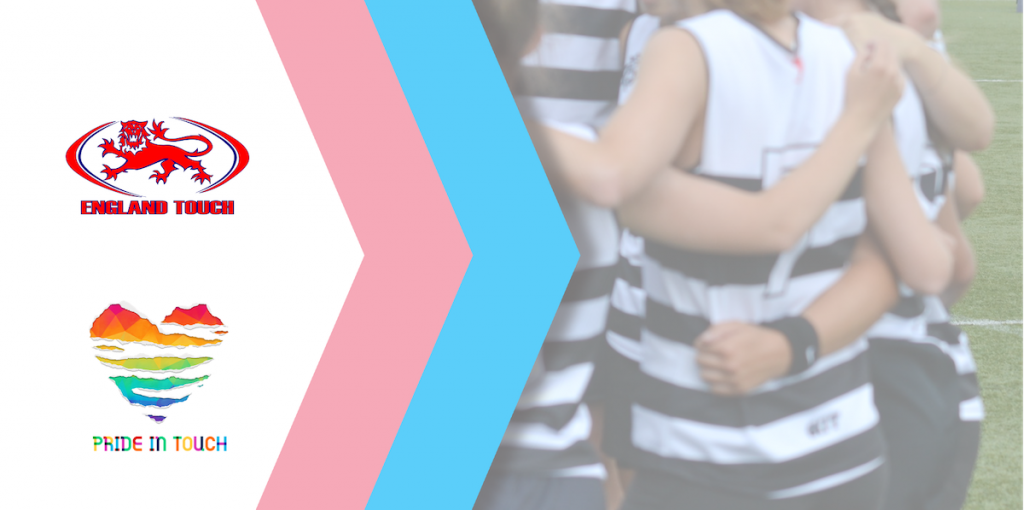
JH: Rugby’s getting some good press for the LGBTQ+ community at the moment because it’s featured so prominently in Heartstopper on Netflix. Maybe some people who have seen that will be inspired to come to the WLQP session in Chiswick! What was your Heartstopper – an LGBTQ+ relationship represented in pop culture that you remember from your youth?
Nick: I identified very strongly to Beautiful Thing, and the story of Jamie and Ste. It’s a beautiful film. Albeit there was also the hilarious conversation I had with my mum when I was about 10 when I told her that I really loved Philip Schofield… she said it was really nice that I loved anyone!
Tom: We did a Q&A two years ago for our London Eagles touch rugby club with another player who’s LGBTQ+ and we talked about this sort of stuff. I was someone who naturally seemed to find myself in team sports and I didn’t necessarily ‘present’ in any obvious ways as being LGBTQ+.
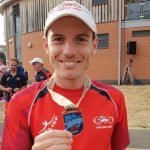
But looking back now, I realise I had this internal struggle going on about not feeling settled in a team environment and for a long time, I couldn’t put my finger on it. Before I did, I’d dropped out of team sport completely. There must have been something at play there about not being my authentic self, and not being honest with either myself or my team-mates.
You have to feel relaxed, comfortable, and accepted – that’s the only way it’s going to work as part of a team. I do wonder at times that had I been in an environment back then where I could have been myself, would I have dropped out at all? What sports would I have carried on playing and what might have happened? Because I was very sporty. Having said that, I might have never played touch if that had been the case.
I do know that I had no clear or obvious role models when I was growing up, particularly in sport. The closest I had was Jonny Wilkinson, because I saw him doing all these incredible things for England – but I also knew he wasn’t the same as me.
If he or someone of that influence had stood up and said ‘I’m gay’, that would have been an absolute gamechanger for me. I would have thought, ‘wow, if he’s gay and he’s achieved all of that, that’s what I can do’. Instead, I had this narrative somewhere in my head saying, ‘there’s no one like you so you can’t do this’. That seems almost ridiculous when you’re an adult and you’ve been out for a good while – but it’s why we still talk a lot about role models.
Pride in Touch did some Q&A content for Pride last year with touch players from grassroots to international level. We asked them what it is about touch that they like, how did they fall into the sport, why it’s a good game to play for anyone, etc. We just want to make touch players that are in the community visible so that others can try and identify with them. The full pathway is there for anyone who wants it.
Nick: Personality type also plays a part in this, I think. I’m more the extrovert, Tom is more the introvert. I did a lot of acting at school and although it took me a while to come out, by the time I did at the age of 19, I was relatively happy to tell whoever I met so long as it wasn’t plastered on a billboard, if you know what I mean.
Tom is more ‘non-confrontational’ and wouldn’t have wanted to be in any situation where people might be saying, ‘so, have you got a girlfriend?’ or ‘are you going out with the lads tonight on the pull?’ I dare say a lot of that probably filtered into your thinking at the time – not wanting to expose yourself to scenarios in team sport where you might have had to fend off those questions?
Tom: Yeah, that’s right. Team sport particularly is so competitive, even more so of course as you move towards the elite, and with that comes the pressure of performance and selection as well. Touch is a relatively small sport so I can’t imagine what it’s like if you’re playing a sport that’s more in the public eye.
You put so much pressure on yourself to achieve your goals and achieve as much as you can. If someone said, ‘you should come out, you can be a role model, we can do some great content, we could make you an ambassador for this or that’… is the foundation there for them to do that and take on everything else? Shouldn’t it be a case of creating a very inclusive and welcoming environment so that it’s more natural? But until that’s there, we won’t get the role models. Clearly in sports like men’s football and men’s rugby, there should be more out gay and bi guys than there are currently.
Also, we’ve spoken to LGBTQ+ women who play touch and they’ve told us how they’ve struggled because there’s been this pre-defined expectation of what they are. Some have been outed before they were ready because there’s still an expectation that if you’re a woman and you’re good at sport, therefore you must be gay. If they are gay, then that’s theirs to own, and they choose when and if they want to tell you about that. So there’s work to be done across the board.
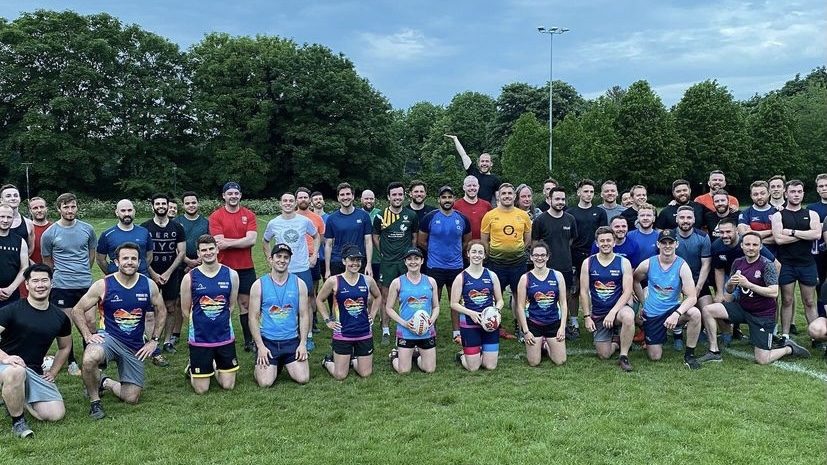
JH: It’s one reason why the likes of Pride in Touch and Sports Media LGBT+ still exist – to help ease those pressures and provide education. Because so many sports organisations aspire now to be LGBTQ+ inclusive but they don’t necessarily reference that in a way that actually attracts our communities – if it’s there at all, it’s very understated.
Tom: That’s right. Even more so now, there’s a fear of tokenism and rainbow washing so I get that there’s this tentative approach. People think, ‘do we just do a rainbow logo?’ And then they realise that’s not enough.
Nick: Hopefully, initiatives like ours provide organisations like England Touch and In2Touch with validity because we can stand next to them and say that they asked for our help with this policy, or we’re running taster sessions here, or we’re doing a Pride activation with them, etc.
It comes back to where we see Pride in Touch – as a platform to help direct people to those who are doing good work.

Thanks to Nick and Tom. Follow @prideintouch on Twitter and Instagram, and like their page on Facebook. You can also buy Pride in Touch merchandise from their online shop!
To learn more about West London Queer Project, head over to their website where those who live in and around the area can sign up for the touch rugby taster session in Chiswick on Saturday, May 14 (starts 10am BST).
Sports Media LGBT+ is a network, advocacy, and consultancy group that is helping to build a community of LGBTQ+ people and allies in sport. We’re also a digital publisher. Learn more about us here.
We’re interested in your news and stories. Share with us and tap into a worldwide audience through our Google News affiliate website and our popular social channels with over 10,000 followers. Contact us to discuss how we can help you.


